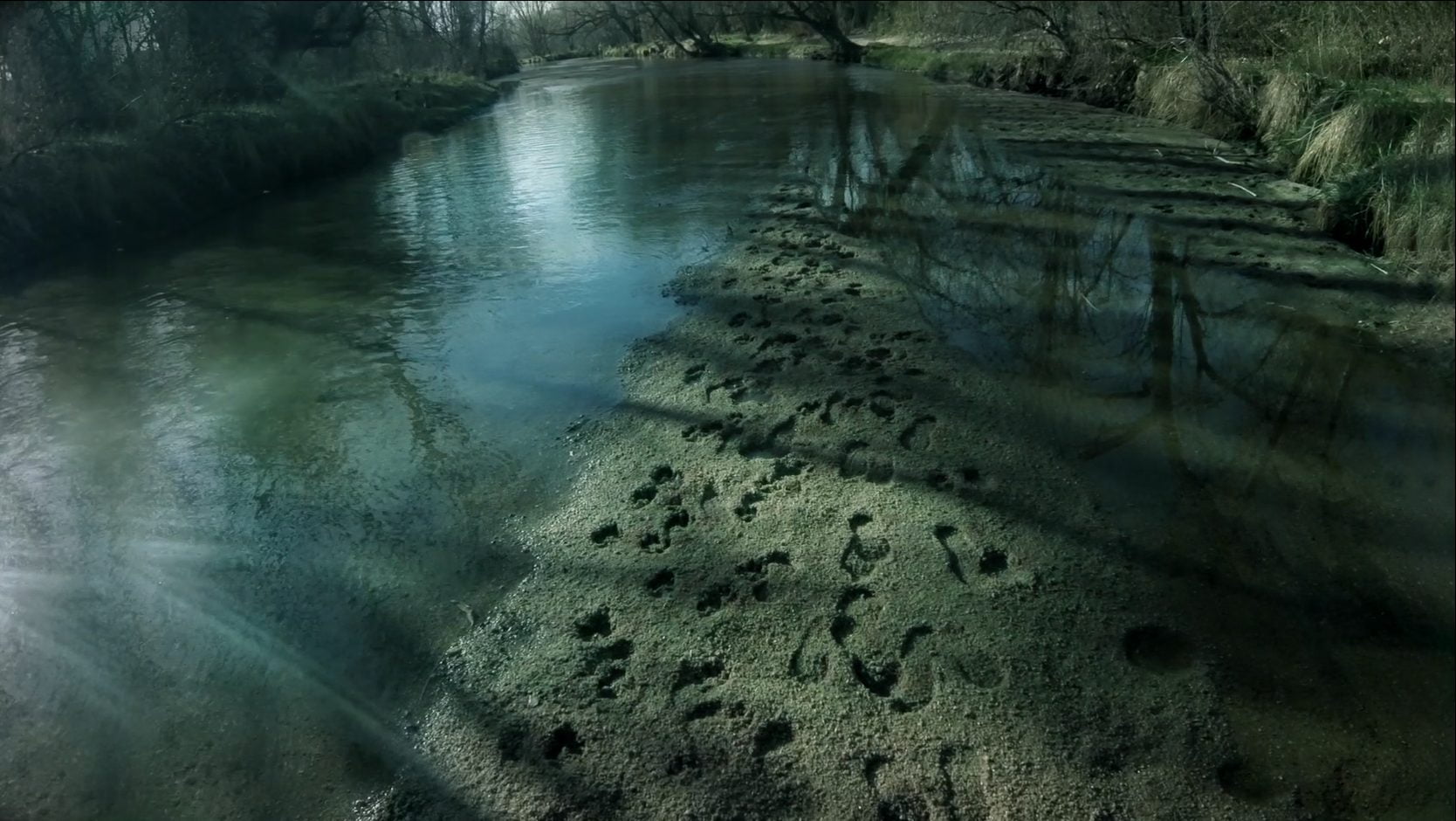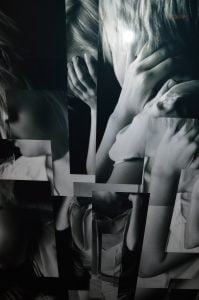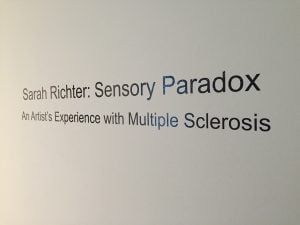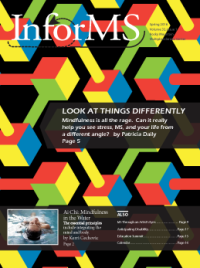
Communicating about your MS isn’t always easy – so many symptoms aren’t just internal, but they’re also extremely difficult to explain in words.
 We’ve all been tired, but how do you describe “fatigue” to someone who’s never experienced the kind of energy sap MS can bring forth? What can you do to make someone understand what it’s like to wake up one morning with triple vision? How do you communicate having difficulty with the simplest of daily tasks that most of us take for granted?
We’ve all been tired, but how do you describe “fatigue” to someone who’s never experienced the kind of energy sap MS can bring forth? What can you do to make someone understand what it’s like to wake up one morning with triple vision? How do you communicate having difficulty with the simplest of daily tasks that most of us take for granted?
For Sarah Richter, the answers came through her art.
Sarah is a Master of Fine Arts candidate at the University of Denver in the Emer-gent Digital Practices program, which strives to bring together art, design, media, culture and technology studies. Her exhibit, Sensory Paradox, recently finished a three-month stay at the Art Gallery at the Fulginiti Pavilion for Bioethics and Humanities on the University of Colorado Anschutz Medical Campus.
“In my experience of living with this condition, I’ve found it to be a fluid and dynamic process,” says Sarah. “Symptoms can change and heal over time, new symptoms can occur, and all of these physical occurrences change the way I perceive and interact in the world.”
 Sensory Paradox features elements inspired by fatigue, vertigo, visual changes and auditory distortions, to name a few. Sarah’s interpretations of MS symptoms were illustrated through video, imagery, audio and sculpture. On the website, many elements will be recreated for visi-tors to experience at their convenience.
Sensory Paradox features elements inspired by fatigue, vertigo, visual changes and auditory distortions, to name a few. Sarah’s interpretations of MS symptoms were illustrated through video, imagery, audio and sculpture. On the website, many elements will be recreated for visi-tors to experience at their convenience.
“When reviewing the lists of multiple sclerosis symptoms, it’s challenging to imagine what the experience is like for people who live with the disease every day,” said Sarah. “It’s especially challenging when we consider that MS symptoms and severity greatly vary from one person to the next, come and go, and are often invisible.”
“It’s a fluctuating landscape with effects that are negative, positive and often unexpected,” said Sarah. “These symptoms are painful, and sometimes they’re beautiful and inspiring, too.”
The Rocky Mountain MS Center is actively looking for galleries or other spaces that would be interested in housing the complete exhibit in the future. If you know of a space that may be appropriate or interested in showing this unique exhibit, please contact publishing@mscenter.org.

